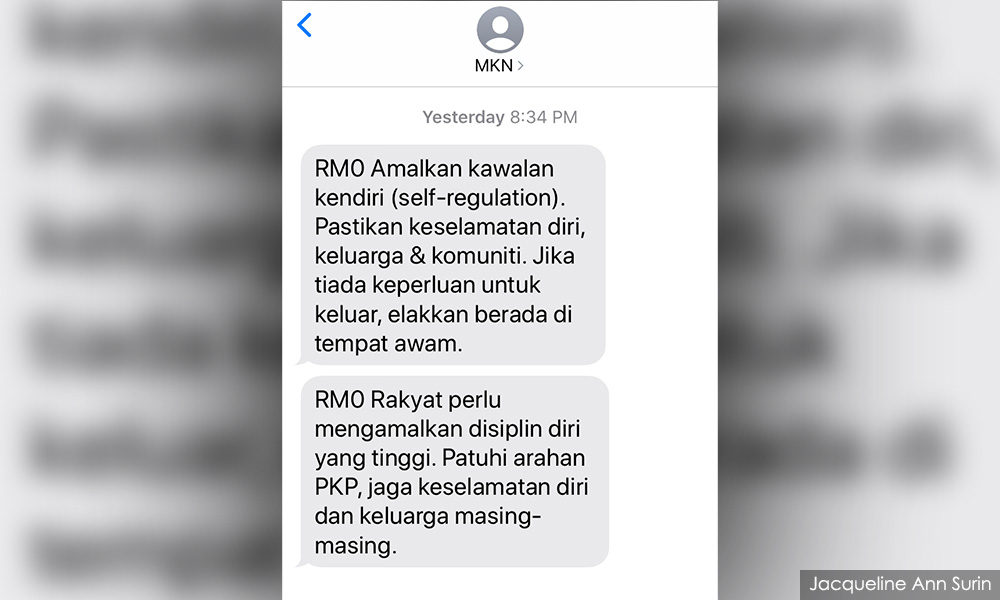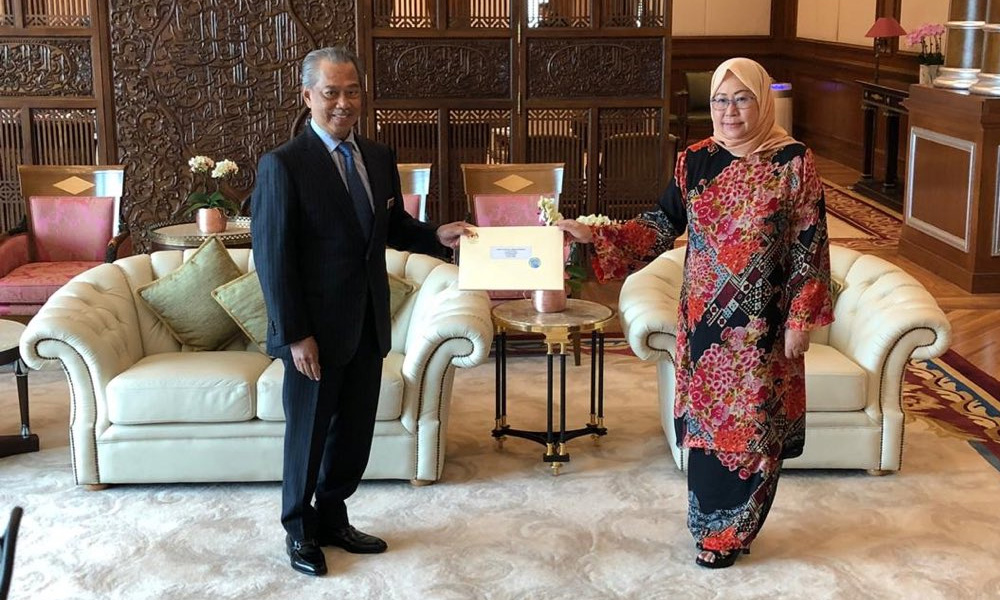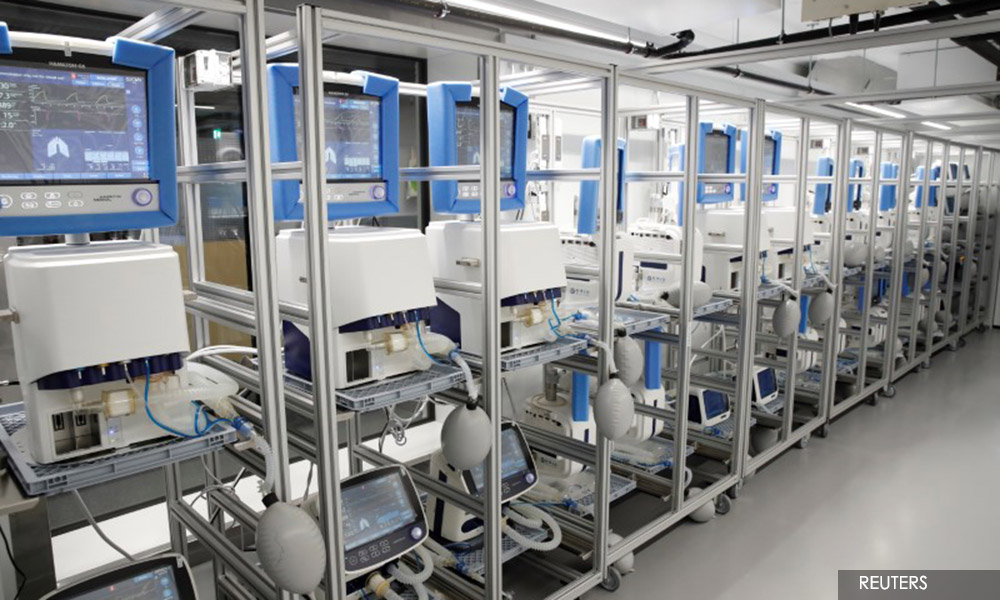
As the nation begins to transit from a tight movement control order (MCO) to a looser conditional MCO, what we all need is a healthy dose of clear, coordinated and creative communication.
Unfortunately, the Perikatan Nasional government’s announcement on Labour Day, and its subsequent communication, falls short of that.
As a result, while I’m sure many are thankful there’s a bit more freedom of movement, many are also alarmed.
Over the weekend, Malaysians organised a petition calling on the government to maintain the MCO that was scheduled to end on May 12.
At the time of this writing, the petition has more than 470,000 signatures.
At the same time, medical professionals warned that premature relaxation of the MCO could result in a resurgence of transmissions and infections.
Nine states have also announced they will not follow the federal government’s lead in relaxing the MCO from May 4.
Malaysians are now being told that we must practise a high level of self-discipline, social discipline and compliance.
What we are not being told is what the government will do to nudge and compel a large percentage of the populace to actually do that.
Indeed, expecting companies, businesses and restaurants, or members of the public to manage and police public behaviour is an unrealistic demand. No good will come out of it.
Why? Because it will require an immense amount of attention and resources. And this is something many can ill afford.
How then can the government educate Malaysians about the need to be socially disciplined so that we have a self-regulating populace?
Here are some suggestions that may work:
1. Give people time to adjust
Timing is often everything. Prime Minister Muhyiddin Yassin announced the relaxation of the MCO on May 1.
The relaxation was meant to begin on May 4 for selected companies and businesses.
At the same time, everyone was still expected to comply with the existing conditions under the MCO.
Even though businesses and companies didn’t actually have to reopen on Monday itself, unless they were ready, the opportunity and suggestion to do so was explicit in the announcement.
Did the government consider how businesses and companies would adjust to this revised new normal when it was the long May Day weekend? It doesn’t feel that way.
At the same time, cognitively, it is just hard to understand what the rules are. We are still under the MCO until May 12.
But it has been relaxed and there are some rules I still need to follow but I no longer need to follow some others.
That’s asking a lot from people to have to figure out in just three days, especially when there were still questions left unanswered.
Moreover, in times of danger, people are mostly operating from their reptilian brains to keep them safe.
Asking people to do the thinking that only our neocortex can do, while we are all still feeling threatened, just doesn’t work.
And so, during a crisis, most people just need one clear directive. And the authorities need to just keep things simple.
Hence, it would have been so much better if the federal government had announced that the MCO would be relaxed after May 12.
Or the federal government could have done what Penang is doing – stagger the reopening of the economy, with ample notice about what to expect and do over a specific timeline.
2. Get creative in government messaging
The government needs to have a concerted and intelligent public service announcement (PSA) campaign to encourage self-regulation.
Unfortunately, the only thing I’ve seen on my phone are text messages from the National Security Council (NSC) telling me I need to practise self-regulation and discipline.

That just doesn’t work. I know it doesn’t because I had educated and intelligent friends still socialising with each other during the MCO or not self-quarantining, despite returning from abroad.
And I had invitations from generous and kind friends to visit because I was going stir crazy from the MCO. But I declined them.
What stops me? It’s certainly not those text messages from the NSC. What stops me from violating the MCO is the thought of zombies. I’m not joking.
In 2013, the movie World War Z, starring Brad Pitt, was released. I’m not a zombie movie fan.
But the movie was based on a book by American author Max Brooks.

Brooks used the metaphor of a zombie plague to narrate what will happen socially, politically and economically in a pandemic’s wake.
I’ve watched the movie more than once, not for the zombies nor for Pitt (okay, maybe I lie!), but because the story of global collapse from a pandemic is so compelling and prescient.
So, when Covid-19 struck, my strategy for staying home for an unnatural length of time was to think of the virus as a zombie plague.
Going out would expose me to the virus. And if I would certainly stay home during a zombie plague, I was going to stay home during the Covid-19 pandemic.
What the zombie metaphor did for me was it helped me to see, in my mind, the clear and present danger of Covid-19, even though it is invisible and its impact less terrifying than turning into a zombie.
I’m not suggesting the government uses zombies in its PSA. I am saying, it needs to get creative and employ proven story-telling techniques to nudge people in the direction of social discipline and compliance.
For example, the Ohio Department of Health uses the metaphor of ping pong balls smashing into each other to promote compliance of physical distancing.
In Vietnam, which has done an outstanding job of containing the virus, the government commissioned two famous pop singers, artists and influential figures to help make their containment efforts a success.
Messages like “I’m not stuck at home. I’m safe at home”, which my mum forwarded to me on WhatsApp, are also useful reframes.
They help people think about the good of doing something, rather than focusing on the problem it creates.
Compare this to the directive from the health director-general of “Follow the SOP, or stay at home”. He’s not wrong, of course.
And instructing people all the time is a lot more work than getting them to think about something in a different way so that they will act of their own volition.
3. Be completely truthful about ventilators
The prime minister’s public health advisor Dr Jemilah Mahmood (on right in picture, below) has said that one of the reasons it is safe to begin relaxing the MCO is because we have “more than enough ventilators”.

I wonder what kind of message that sends. I wonder if that means that some people now feel reassured that if they get Covid-19, they will be okay because we have enough ventilators.
More troublingly, that is an incomplete message about ventilators. The fact is, there is increasing evidence that those who go on a ventilator don’t survive.
In China, the UK and the US, the death rates are between 50 percent to more than 80 percent.
And for patients who do survive, the NPR's science desk correspondent Jon Hamilton reports, recovery is a long and painful road, with some survivors experiencing post-traumatic stress syndrome.
That is the hard truth about ventilators. And that hard truth needs to be part of the government’s PSA.

That way, people who have a strong tendency to move away from a problem will be motivated to be socially disciplined on their own.
There are certainly legitimate reasons to be afraid that this government has made the wrong decision, from a public health perspective, about relaxing the MCO.
Indeed, countries that have relaxed movement restrictions have subsequently seen a spike in infections.
The Netflix documentary Coronavirus, Explained points out that during the Spanish flu of 1918, St Louis decided to end its physical distancing policies on Nov 16 that year.
The death rate jumped after that and the city had to lockdown again.
And Covid-19 experts in South Africa are predicting a five percent to 10 percent jump in infection rates as the country moves away from a hard lockdown.
“The problem is, if we’re not careful, that smouldering outbreak can last a long time,” one expert says on the Netflix documentary, no less because a vaccine will take at least a year.
Plus, it really is impossible to predict all the ways in which a virus will evolve, even if for now it seems that this one has a slow mutation rate.
Additionally, other coronaviruses don’t provide lifelong immunity and for now, it’s unclear whether this one will.
So, yes, we need to ensure social discipline and compliance as we begin to reopen the economy.
And while we do that, the Perikatan Nasional government needs to be doing a lot more to get creative and clear in its communication so that more and more people are nudged and compelled to do just that.
JACQUELINE ANN SURIN is an online trainer and facilitator, a Drama@Work consultant, and a leadership coach. She was an award-winning columnist, a journalist for 20 years, and the co-founder of The Nut Graph before switching careers. - Mkini



No comments:
Post a Comment
Note: Only a member of this blog may post a comment.